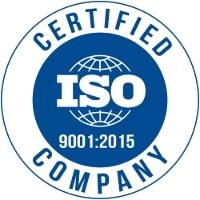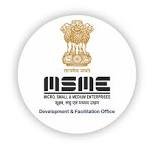
TradeMark Registration
Trademark Registration In India - An Overview
Trademark Registration is key for businesses to protect their Intellectual Property. Registering gives you Brand Protection and the sole Legal Rights to your symbol, logo, or name. Always do a Trademark Search before registering. This ensures no other trademarks could cause Infringement. For your application, you'll choose Trademark Classes and send it to the Trademark Office. Consulting a Trademark Attorney can make the process smoother. After registering, you can use the Trademark Symbol. Do not forget to meet Renewal deadlines to keep your rights. This whole process strengthens your Brand Identity and stops others from copying.
Why Is Trademark Registration Important?
Trademark registration in India is crucial as it protects your brand and prevents others from using similar signs. It gives you legal rights to your brand, boosts your brand's value, and assures customers about the quality of your products or services. It also helps in brand recognition and trust-building among customers.
Following the Indian Trademarks Act of 1999 (Section 2(zb)), a trademark is a distinctive marker that distinguishes products or services from competitors in the market. It encompasses various elements such as symbols, designs, expressions, or any identifiable feature linked to a specific brand. Remarkably, trademarks are open to ownership by individuals, corporations, or legal entities, making them accessible to a broad spectrum of entities and individuals alike.
Why Should You Register Your Trademark?
Trademark registration protects your rights to use the mark in association with your goods or services. It offers a robust shield against infringement, empowering you to take legal action against unauthorized trademark use. Upon successful registration, your trademark remains valid for ten years from the filing date, with the option to renew it indefinitely.
Absolutely! Trademark registration is accessible to a diverse range of entities and individuals, ensuring that businesses of all sizes and structures can protect their brand identities. Here's a breakdown of who can apply for trademark registration:
1. Individuals: Any individual person can apply for trademark registration to protect their personal or business brand.
2. Joint Owners of a Company: If multiple individuals jointly own a company, they can collectively apply for trademark registration to safeguard their company's brand identity.
3. Proprietorship Firms: Proprietorship firms, which are businesses owned and operated by a single individual, can apply for trademark registration to protect their business names, logos, or other brand elements.
4. Partnership Firms: Partnership firms consisting of up to ten partners can collectively apply for trademark registration to protect their business name, logo, or other brand assets.
5. Limited Liability Partnerships (LLPs): LLPs, which are a form of business structure combining elements of partnerships and corporations, can apply for trademark registration to protect their business name, logo, or other brand assets.
6. Indian Companies: Companies registered under the Indian Companies Act, including private limited companies, public limited companies, and one person companies (OPCs), can apply for trademark registration to safeguard their corporate brand identities.
7. Foreign Companies: Foreign companies operating in India can also apply for trademark registration to protect their brand identities within the Indian market.
8. Trusts: Trusts, whether charitable, private, or public, can apply for trademark registration to protect their organizational or programmatic brand identities.
9. Societies: Societies, including charitable societies, cooperative societies, and other membership-based organizations, can apply for trademark registration to protect their organizational brand identities.
This inclusive approach to trademark registration ensures that businesses and entities across various sectors and structures have the opportunity to protect their brand assets and establish a distinctive presence in the marketplace.
Types of Trademark Registrations in India
In India, various trademark registrations cater to different needs and purposes, all aimed at enabling consumers to recognize products and services associated with specific manufacturers or service providers. Here, we delve into the distinct categories of trademark registrations available:
Product Mark: This type of trademark is affixed to goods or products, aiding in identifying their origin and preserving a company's reputation. Trademark applications falling under classes 1-34 are typically classified as product marks as they pertain to tangible commodities.
Service Mark: Similar to a product mark, a service mark is used to identify services rather than physical products. Service marks primarily help differentiate the providers of certain services from others. Trademark applications falling under classes 35-45 are often regarded as service marks related to service offerings.
Collective Mark: A collective mark conveys specific characteristics of products or services associated with a particular group. It allows individuals or entities to protect and represent goods and services collectively. The trademark holder may be an association, a public institution, or a Section 8 corporation.
Certification Mark: The owner issues these marks to indicate information about a product's origin, composition, quality, or other pertinent data. Certification marks establish product standards and assure consumers that the product meets standardized quality benchmarks. They are commonly found in packaged goods, toys, and electronics.
Shape Mark: Shape marks are employed to secure the distinct shape of a product, making it easily recognizable to consumers as originating from a specific manufacturer. Registration is contingent on the shape being deemed distinctive.
Pattern Mark: Pattern marks are used for products featuring unique, designed patterns that serve as distinguishing features. To qualify for registration, these patterns must stand out as distinctly recognizable.
Sound Mark: Sound marks are distinctive sounds associated with products or services from suppliers. Sound logos, often known as audio mnemonics, are commonly heard at the beginning or end of commercials. An example in India is the IPL tune.
These diverse categories of trademark registrations offer businesses and entities the flexibility to protect their brand identity following their unique offerings and market presence.
Trademark Classes
There are 45 trademark classes and all the goods and services are categorised across these classes. You need to be very careful while picking the classes as it will determine the validity of your trademark registration for your business’ products/services. If your business operates across different goods/services that fall under different classes, you have to ensure that you can apply for a trademark online under all the applicable classes.
Some of the Popular Trademark Classes in India:
- Class 9: which includes computer software and electronics,
- Class 25: which includes clothing,
- Class 35: which includes business management and advertising, and
- Class 41: which includes education and entertainment.
If you are operating within these trademark classes, the competition for a trademark might be higher. However, that shouldn’t matter as long as your mark is unique.
Documents Required for Tradmark Registration
- Copy of trademark to be registered
- Identify proof of the trademark owner
- Address proof of the trademark owner
- Certificate of incorporation and address proof in case of company
Tradmark Registration Process









